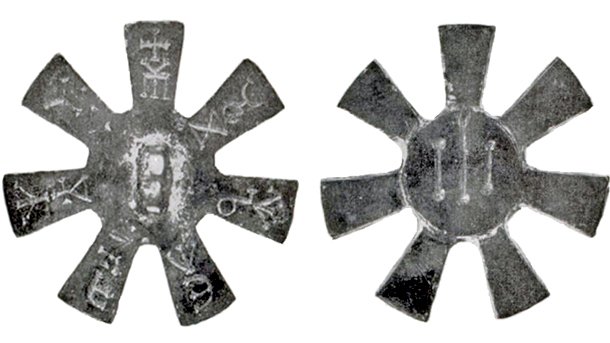
In 681 a branch of Proto-Bulgarians led by Khan Asparuh founded an autonomous state in the Balkans. They had come from the lands to the North of the Caucasus and the Black Sea where Asparuh’s father Kubrat had established a tribal union known as Old Great Bulgaria. Their land of origin however is further to the East, in Asia. Surviving artifacts attest to the highly developed culture of Proto-Bulgarians. Given the strategic location of the central Balkan Peninsula, it has always been the scene of brisk trade. However to be able to run trade successfully, the Proto-Bulgarians had to have sufficient knowledge of mathematics.
“The existence of medieval Bulgaria would have been impossible without certain knowledge of mathematics”, says Mincho Beykov, teacher in mathematics at Emilian Stanev Secondary School in Veliko Tarnovo, Central Bulgaria. “During the Byzantine conquest of Bulgaria from 1018 to 1185 tax payment in cash was introduced and every Bulgarian had to acquire some mathematical skills to be able to pay taxes”, he says. Mr. Beykov is holder of two Neophyte Rilski honorary distinctions from the Ministry of Education, and in 2001 was named Teacher of the Year. In 2003 in front of an international audience of scholars, he delivered a lesson on the Pythagorean theorem. During this lesson he also talked about the mathematical knowledge of Asparuh Bulgarians. The lecture was very successful. “This made me think that I was on the right track, and in 2004 I released my book ‘Mathematical knowledge of Bulgarians 7-14 c.’”.
“Well, I come from Tarnovo, and we really have strong respect for history, given that our city was the capital of the Second Bulgarian Kingdom (12-14 c.). So, this was the emotional part of the project. In 1981 I won an anonymous contest of the Union of Mathematicians in Bulgaria for an article about 1300 years of mathematics in Bulgaria. I wrote an article on mathematics during the time when Tarnovo was Bulgaria’s capital. I later wrote other articles on medieval knowledge of mathematics in this country. In 1904 in the German city of Heidelberg the first geometry professor in Bulgaria Anton Shourek delivered a report on Teaching Mathematics in Bulgaria. Opening the report, he said: ‘It is impossible to find out what the state of mathematics was before Bulgaria fell under Turkish rule in 14 c., because the history of the Bulgarian literature makes no mention of it. Besides, most books were annihilated by the conquerors.’ So, the aim of my book is to provide a systematic account of surviving evidence about mathematical knowledge in Bulgaria during the Middle Ages.”
In his book Mincho Beykov writes about the seven-petal rosette, an ancient Bulgarian bronze artifact, found near Pliska, Bulgaria’s capital from 7 to 9 c. The rosette represents a seven-pointed star with runic symbols on it. It is obviously the materialization of mathematical knowledge, because a geometrical analysis reveals triangles with 30 and 60-degree angles. The Tarnovo mathematician has studied 200 symbols found in the rocks and at the bottom of various vessels to establish their geometrical content. He thinks that they represent a code and were usually left by masons who wouldn’t share their skills with anybody.
“The Proto-Bulgarians who founded this state were intellectually powerful, and very confident”, Mincho Beykov argues. “This is clearly seen in the surviving Nominalia of Bulgarian Khans. It keeps data about the founding of the Bulgarian state and its monarchs, but also mentions the Proto-Bulgarians’ own system of chronology. They even had a calendar of their own – its creation requires sound knowledge of mathematics. The Proto-Bulgarians had their own symbols of digits. Evidence about the astronomical knowledge of Proto-Bulgarians has been provided by the writer from the Preslav Literary School John Exarch (late 9, early 19 c.). In his book Shestodnev (Six Days) he wrote about the circumferences of the Earth and the Moon. Well, this meant that knowledge of mathematics and astronomy was good. The capital Pliska was a beautiful place – all buildings had right angles. To build at right angles, our forefathers must have been familiar with the Pythagorean theorem. The conclusion is that the Proto-Bulgarians arrived to the Balkans with their own body of mathematical knowledge. Later on, resulting from exchange with Byzantium and other European countries that knowledge developed and expanded.”
The Bulgarian medieval heritage in this sphere has been acknowledged by the world scientific elite. Mincho Beykov quotes Japanese historian Shigioshi Matsuyama who argues that the Bulgarian medieval culture is among the seven civilizations in the history of mankind that have acted as a link between the East and the West.
English version Daniela Konstantinova
The Days of Croatian Archaeological Heritage, which will last until 8 November, begin today at the National Archaeological Institute with Museum at the Bulgarian Academy of Sciences (NAIM-BAS) in Sofia. The event is organised by the Croatian Embassy in..
Today, 6 November, marks 104 years since the annexation of the Western Outlands in 1920. Traditionally Bulgarian territories in south-eastern Serbia and northern Macedonia were ceded to the Kingdom of Serbs, Croats and Slovenes in 1920 as a result of..
Volunteers joined the efforts to clean and restore the monastery St. Spas near Bakadzhik peak. The campaign is being organized on 2 November by Stoimen Petrov, mayor of the nearby village of Chargan, the Bulgarian news agency BTA reports. The..
With the blessing of His Eminence Metropolitan Arsenii of Sliven, a copy of the miraculous Athonite icon of the Most Holy Theotokos "She Who is Quick to..

+359 2 9336 661
